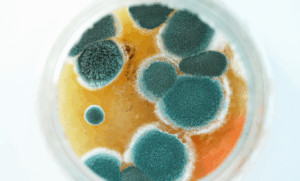Stem cell therapy has emerged as a groundbreaking treatment in the field of regenerative medicine, offering the potential to address a wide array of medical conditions. By harnessing the body’s ability to regenerate and repair tissues, stem cells hold promise for treating autoimmune diseases, orthopedic injuries, neurodegenerative disorders, and more. This article explores the diverse applications and stem cell therapy benefits, supported by the latest stem cell research advancements.
Hematopoietic Stem Cells and Autoimmune Diseases
Hematopoietic stem cells have been traditionally used to treat blood-related disorders, but its application in autoimmune diseases is now gaining attention. According to Alaez et al. (2006), hematopoietic stem cell therapy can “reset” the immune system by replacing defective immune cells with healthy ones. This technique has shown great promise in treating conditions such as multiple sclerosis and systemic lupus erythematosus.
In their review, Alexander et al. (2021) emphasized the transformative potential of hematopoietic stem cell therapy in managing autoimmune diseases, especially for patients who do not respond to traditional therapies. The immunomodulatory properties of these stem cells allow for long-term remission. Ben Nasr et al. (2016) further underscored that hematopoietic stem cells can reduce inflammation and promote tissue regeneration, making them an attractive option for patients with autoimmune diseases such as Crohn’s disease and rheumatoid arthritis.
Van Laar and Tyndall (2006) also explored how stem cell research advancements in adult stem cells contribute to treating autoimmune diseases. Their findings support the view that hematopoietic stem cells can effectively modulate immune responses, offering patients a pathway to remission in diseases like systemic sclerosis and lupus.

Mesenchymal Stem Cells for Pain Management and Orthopedic Therapies
Mesenchymal stem cells are highly versatile and has been studied for its ability to treat conditions like joint degeneration and injuries. MSCs have shown promise in addressing stem cell treatment for pain in orthopedic conditions. Hevesi et al. (2019) explored the use of MSCs in ligament repair, finding that these cells significantly enhance tissue regeneration, offering relief for joint and ligament pain caused by injury. Similarly, Gulotta et al. (2011) noted that MSC-based therapies could augment tendon repair, improving recovery and reducing chronic pain.
In addition to pain relief in orthopedic settings, MSCs have also shown potential in treating chronic lung diseases like pulmonary fibrosis. Cheng et al. (2022) highlighted how MSCs can reduce lung inflammation and fibrosis, leading to improved pulmonary function. This showcases the broad application of stem cell therapy benefits beyond pain management and into chronic disease treatments.

Stem Cells for Anti-Aging and Skin Regeneration
Stem cell therapy benefits extend beyond disease treatment; it is also being explored in anti-aging medicine. Godic (2019) discussed the use of MSCs to reduce inflammation and regenerate aging tissues. By targeting oxidative stress and cellular damage, MSCs can slow aging and improve skin vitality, making stem cell therapy a growing trend in regenerative medicine.
Gonzalez et al. (2015) further emphasized that stem cell therapy can reduce inflammation, a primary contributor to the aging process. In dermatology, MSCs have been studied for their potential in treating autoimmune skin conditions like psoriasis. Paganelli et al. (2020) demonstrated that MSC therapy could regulate immune responses and reduce skin inflammation, offering benefits to patients with chronic inflammatory skin conditions.he potential to revolutionize treatment protocols across multiple medical fields.

MSC Therapy for Pain in Rheumatoid Arthritis and Osteoarthritis
MSC-based stem cell treatment for pain is also gaining popularity in managing degenerative joint diseases like rheumatoid arthritis (RA) and osteoarthritis (OA). Hwang et al. (2021) found that MSCs could reduce joint inflammation and promote cartilage regeneration in RA and OA patients, offering long-term pain relief. By addressing the root causes of joint pain, MSC therapy offers an alternative to conventional treatments like steroid injections or surgery.
Sarsenova et al. (2021) noted that MSC therapy suppresses autoimmune-driven inflammation in RA, while Yu et al. (2015) reviewed the use of MSCs for meniscus repair, finding that MSC therapy could improve joint function and reduce pain in patients with knee injuries. These findings highlight the role of stem cell therapy in managing chronic joint pain and promoting recovery.
Pulmonary and Cardiovascular Applications of Stem Cells
MSCs have demonstrated significant potential in treating pulmonary diseases like chronic obstructive pulmonary disease (COPD) and cardiovascular complications, particularly in post-COVID-19 syndrome, also known as long COVID. Le Thi Bich et al. (2020) found that MSCs derived from umbilical cords improved lung function in COPD patients by reducing inflammation, while Vij et al. (2023) explored how MSCs helped patients with long COVID recover by reducing inflammation and promoting tissue repair.
These stem cell therapy benefits are not only limited to respiratory and cardiovascular health but extend to pain management and inflammation reduction, making stem cell therapy a versatile tool in regenerative medicine.

MSCs for Neurological Disorders and Traumatic Brain Injury
The potential of MSCs to treat neurodegenerative diseases and brain injuries is a rapidly evolving field in stem cell research advancements. Reyhani et al. (2020) demonstrated that MSCs could promote neurogenesis and protect neurons from oxidative stress in neurodegenerative conditions like Alzheimer’s and Parkinson’s disease. Schepici et al. (2020) also found that MSC therapy could reduce neural inflammation and promote regeneration of damaged brain tissue in traumatic brain injury (TBI) patients.
Stem Cells for Gastrointestinal Disorders and Autoimmune Diseases
The ability of MSCs to modulate immune responses has proven beneficial in treating inflammatory bowel diseases like Crohn’s disease and ulcerative colitis. Zhang et al. (2018) conducted a randomized clinical trial using MSCs in Crohn’s disease patients, finding that stem cell therapy reduced inflammation and improved gut health. Shi et al. (2019) similarly demonstrated MSC therapy’s effectiveness in treating ulcerative colitis, highlighting the role of stem cell therapy benefits in managing chronic gastrointestinal conditions.
Ilic et al. (2012) discussed how stem cell research advancements are opening new avenues for treating immune-mediated diseases with umbilical cord blood-derived stem cells, further extending the benefits of stem cell therapy.
Immunomodulation and Long-COVID Treatment
One of the most exciting areas of stem cell research involves the treatment of long COVID. Loke et al. (2021) examined the immunomodulatory properties of MSCs, showing how stem cell therapy can reduce systemic inflammation in patients suffering from post-viral syndromes like long COVID. This therapy has the potential to improve respiratory and overall health in patients with long-term effects from COVID-19.
Ramalingam and Shah (2021) also explored MSC-based stem cell treatment for pain and autoimmune diseases, such as lupus and multiple sclerosis, showing how stem cell therapy helps modulate both adaptive and innate immune responses, reducing autoimmune activity and pain.
ViveWell Health’s Commitment to Advancing Regenerative Medicine
Stem cell therapy continues to revolutionize regenerative medicine, offering numerous benefits across a wide range of diseases and conditions. From treating autoimmune disorders to providing pain relief in joint diseases and promoting tissue repair in chronic conditions, stem cell therapy benefits are becoming increasingly recognized. As stem cell research advancements continue, these therapies will likely become more prevalent, offering hope for patients with previously untreatable conditions.
At ViveWell Health, we are dedicated to staying at the forefront of stem cell treatment by incorporating the latest stem cell research into our practice. Our approach to regenerative medicine ensures that our patients benefit from the most innovative and personalized treatments available today. By offering care that promotes long-term health and recovery, we strive to help our patients fully realize the potential benefits of stem cell therapy.
As research into stem cells continues to advance, ViveWell Health is committed to delivering the latest and most effective therapies to our patients. We aim to empower individuals to explore the possibilities of stem cell therapy as part of their healthcare journey, providing cutting-edge treatments to enhance their quality of life and overall well-being.
References
Alaez, C., Loyola, M., Murguía, A., Flores, H., Rodríguez, A., Ovilla, R., Ignacio, G., Amador, R., Salinas, V., Perez, F., Rodríguez, D., Morales, Z., Llinguin, G., Vazquez, A., Altamirano, A., & Gorodezky, C. (2006). Hematopoietic stem cell transplantation (HSCT): An approach to autoimmunity. Autoimmunity Reviews, 5(3), 167–179. https://doi.org/10.1016/j.autrev.2005.06.003
Alexander, T., Greco, R., & Snowden, J. A. (2021). Hematopoietic Stem Cell Transplantation for Autoimmune Disease. Annual Review of Medicine, 72(1), 215–228. https://doi.org/10.1146/annurev-med-070119-115617
Ben Nasr, M., Bassi, R., Usuelli, V., Valderrama-Vasquez, A., Tezza, S., D’Addio, F., & Fiorina, P. (2016). The use of hematopoietic stem cells in autoimmune diseases. Regenerative Medicine, 11(4), 395–405. https://doi.org/10.2217/rme-2015-0057
Cheng, W., Zeng, Y., & Wang, D. (2022, October 4). Stem cell-based therapy for pulmonary fibrosis – stem cell research & therapy. SpringerLink. https://link.springer.com/article/10.1186/s13287-022-03181-8
Hevesi, M., LaPrade, M., Saris, D. B. F., & Krych, A. J. (2019, October 17). Stem cell treatment for ligament repair and Reconstruction – current reviews in Musculoskeletal Medicine. SpringerLink. https://link.springer.com/article/10.1007/s12178-019-09580-4
Godic, A. (2019, April 26). The role of Stem Cells in anti-aging medicine. ScienceDirect. https://www.sciencedirect.com/science/article/abs/pii/S0738081X19300781
Gonzalez, R., Woynarowsk, D., & Geffner, L. (2015, June 14). Stem Cells Targeting Inflammation as Potential Anti-aging Strategies and Therapies. ProQuest. https://www.proquest.com/
Gulotta, L. V., Chaudhury, S., & Wiznia, D. (2011, November 29). Stem Cells for Augmenting Tendon Repair. Wiley Online Library. https://onlinelibrary.wiley.com/
Hwang, J. J., Rim, Y. A., Nam, Y., & Ju, J. H. (2021, February 4). Recent developments in clinical applications of mesenchymal stem cells in the treatment of rheumatoid arthritis and osteoarthritis. Frontiers Media. https://www.frontiersin.org/journals/immunology/articles/10.3389/fimmu.2021.631291/full
Ilic, D., Miere, C., & Lazic, E. (2012). Umbilical cord blood stem cells: Clinical trials in non-hematological disorders. British Medical Bulletin, 102(1), 43–57. https://doi.org/10.1093/bmb/lds008
Le Thi Bich, P., Nguyen Thi, H., Dang Ngo Chau, H., Phan Van, T., Do, Q., Dong Khac, H., Le Van, D., Nguyen Huy, L., Mai Cong, K., Ta Ba, T., Do Minh, T., Vu Bich, N., Truong Chau, N., & Van Pham, P. (2020, February 13). Allogeneic umbilical cord-derived mesenchymal stem cell transplantation for treating chronic obstructive pulmonary disease: A pilot clinical study – stem cell research & therapy. SpringerLink. https://link.springer.com/article/10.1186/s13287-020-1583-4
Loke, X. Y., Imran, S. A. M., Tye, G. J., Wan Kamarul Zaman, W. S., & Nordin, F. (2021, November 17). Immunomodulation and regenerative capacity of mscs for long-covid. Multidisciplinary Digital Publishing Institute. https://www.mdpi.com/1422-0067/22/22/12421
Paganelli, A., Tarentini, E., Benassi, L., Kaleci, S., & Magnoni, C. (2020, October 1). Mesenchymal stem cells for the treatment of psoriasis: A comprehensive review. Oxford Academic. https://academic.oup.com/ced/article-abstract/45/7/824/6597976
Ramalingam, S., & Shah, A. (2021, March 24). Stem cell therapy as a treatment for autoimmune disease-updates in lupus, scleroderma, and multiple sclerosis – current allergy and asthma reports. SpringerLink. https://link.springer.com/article/10.1007/s11882-021-00996-y
Reyhani, S., Abbaspanah, B., & Hadi Mousavi, S. (2020, June 1). Umbilical Cord-Derived Mesenchymal Stem Cells in Neurodegenerative Disorders: From Literature to Clinical Practice. Taylor & Francis Online. https://www.tandfonline.com/doi/abs/10.2217/rme-2019-0119
Sarsenova, M., Issabekova, A., Abisheva, S., Rutskaya-Moroshan, K., Ogay, V., & Saparov, A. (2021, October 27). Mesenchymal stem cell-based therapy for rheumatoid arthritis. Multidisciplinary Digital Publishing Institute. https://www.mdpi.com/1422-0067/22/21/11592
Schepici, G., Silvestro, S., Bramanti, P., & Mazzon, E. (2020, March 19). Traumatic brain injury and Stem Cells: An overview of clinical trials, the current treatments and future therapeutic approaches. Multidisciplinary Digital Publishing Institute. https://www.mdpi.com/1648-9144/56/3/137
Shi, X., Chen, Q., & Wang, F. (2019, August 23). Mesenchymal stem cells for the treatment of ulcerative colitis: A systematic review and meta-analysis of experimental and clinical studies – stem cell research & therapy. SpringerLink. https://link.springer.com/article/10.1186/s13287-019-1336-4
van Laar, J. M., & Tyndall, A. (2006, June 15). Adult stem cells in the treatment of autoimmune diseases. Oxford Academic. https://doi.org/10.1093/rheumatology/kel158
Vij, R., Kim, H., Park, H., Cheng, T., Lotfi, D., & Chang, D. (2023, October 5). Adipose-derived, autologous mesenchymal stem cell therapy for patients with POST-COVID-19 syndrome: An intermediate-size expanded access program – stem cell research & therapy. SpringerLink. https://link.springer.com/article/10.1186/s13287-023-03522-1
Woo Shin, J., Ryu, S., Ham, J., Jung, K., Lee, S., Hyun Chung, D., Kang, H.-R., & Young Kim, H. (2021, August 23). Mesenchymal stem cells suppress severe asthma by directly regulating th2 cells and type 2 innate lymphoid cells. ScienceDirect. https://www.sciencedirect.com/science/article/pii/S1016847823002273
Yu, H., Adesida, A. B., & Jomha, N. M. (2015, April 30). Meniscus repair using mesenchymal stem cells – a comprehensive review – stem cell research & therapy. SpringerLink. https://link.springer.com/article/10.1186/s13287-015-0077-2Zhang, J., Lv, S., Liu, X., Song, B., & Shi, L. (2018, January 15). Umbilical cord mesenchymal stem cell treatment for crohn’s disease: A randomized controlled clinical trial. National Library of Medicine. https://www.ncbi.nlm.nih.gov/pmc/articles/PMC5753687/






